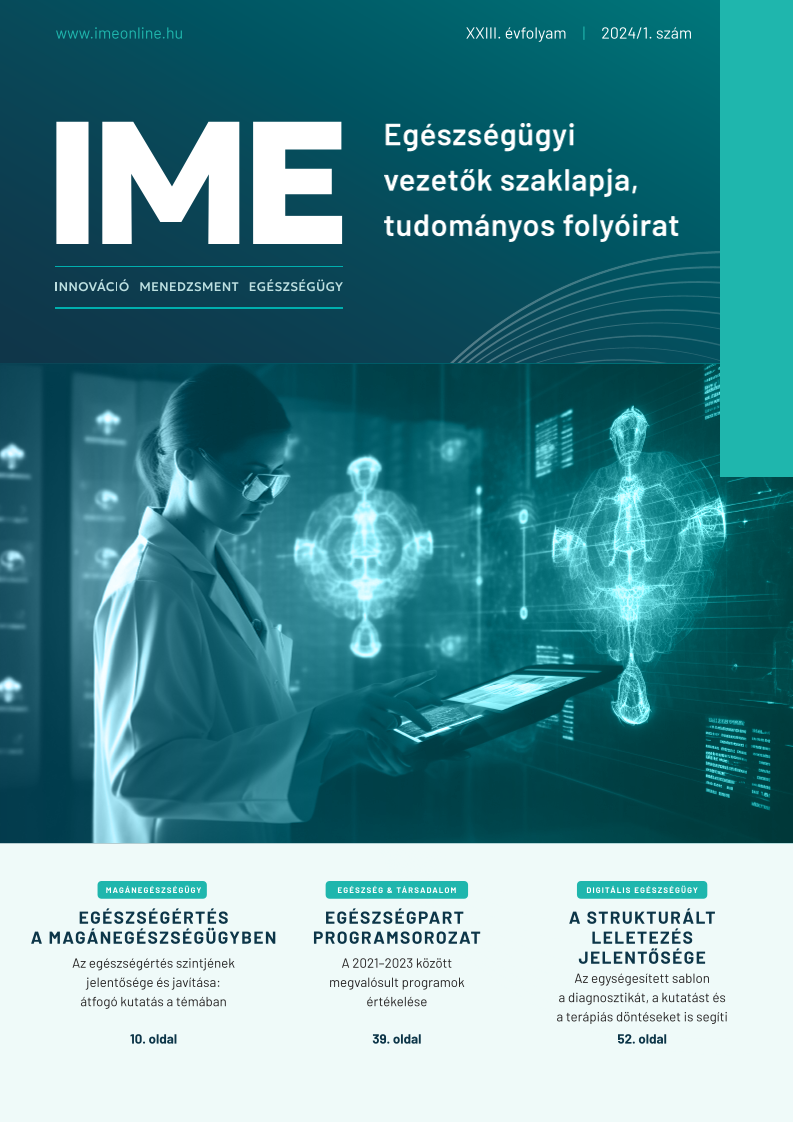Hungarian HungarianClinical pharmacists' role in electronic medication administration
Abstract
Medication management is one of the most costly and risky processes in inpatient care. Therefore, there is a strong interest in the healthcare system to make the use of drugs more effective and safer. This requires proper documentation, which ensures the transparency and statistical processability of the therapies. Although digital administration can solve many safety problems and significantly reduce the time spent on administration, its introduction often encounters obstacles such as insufficient communication during development or passive resistance on the receiving side. At the Karolina Hospital in Mosonmagyaróvár, we aimed to increase efficiency and safety in our traditional central pharmacy department with digital support. The development started in 2018 with the cooperation of Hospitaly Kft. Pharmacists participated in the project from the beginning, so that the processes could be modeled clearly for the programmers. The system is now routinely used in the Internal Medicine and Rehabilitation Departments, and we routinely record the medication of 70-90 patients every day. Between January 1, 2022, and September 7, 2023, we recorded 134,901 medication administration records. In the centralized drug distribution, we handled 768 different drugs, and on average 96.15 dosage units of drugs were dispensed per inpatient case. The most important lesson learned from the project is that the key to modernizing medication administration is the presence of clinical pharmacists on the wards. In a previous study, in which we wanted to highlight the shortcomings of paper-based administration, we recorded a total of 766 formal or conceptual errors from the central medication sheets in 3 months. With the average patient flow characteristic of that period, this affected approximately 38% of inpatient cases. 92% of the errors recorded in this study could be prevented with the introduction of the digital system. The remaining 8% can be solved by medication review. Considering that medication recording was not comprehensive during the study period and the ongoing transformation of the hospital's operation also posed serious challenges, I consider the project to be a clear success. We were able to generate various reports from the structured medication data, which can be used to improve our medication protocols. By comparing medication statistics with other data recorded in the hospital information system in the future, we will be able to draw further conclusions about the effectiveness of our medication strategies. Furthermore, recording medication in this form in the national electronic health record system can significantly facilitate the development of rational and safe medication for patients, and open new horizons in the discovery of drug side effects.

This work is licensed under a Creative Commons Attribution-NonCommercial-NoDerivatives 4.0 International License.




